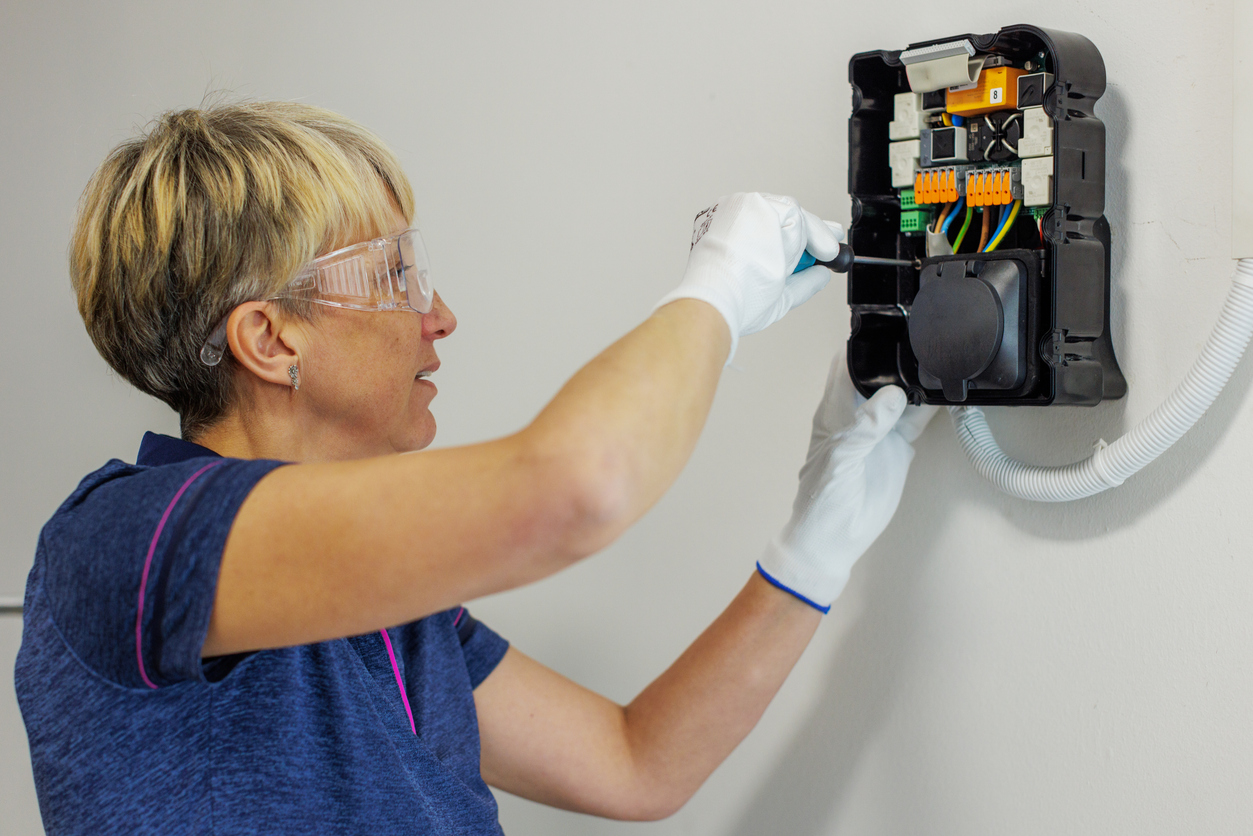The rise of electric vehicles (EVs) has sparked a growing interest in EV charger setups among homeowners and businesses. Installing an EV charger at home or in a commercial setting requires careful planning and consideration. This article provides an in-depth overview of EV charger installation, covering everything from types of chargers to installation processes, costs, benefits, and essential considerations.
1. Types of EV Chargers
There are segmented into two types of EV chargers, such as Level 1 and Level 2. Firstly, the level 1 chargers use a 120-volt outlet and can be used for long hours of charging. Level 2 chargers need a 240-volt outlet and provide faster charging speeds, making them ideal for daily use and quick top-ups.
2. Installation Process
The installation process for an EV charger involves several steps. It begins with evaluating your electrical system’s capacity to support the charger and identifying the best location for installation. Next, an electrician installs the necessary wiring, circuit breaker, and outlet or charging station. Finally, the charger is tested to ensure proper functionality and safety.
3. Costs of Electrical Vehicle Charging station Setup
The costs of their installation vary based on several factors, including the type of charger, electrical system upgrades, installation complexity, and labor rates. Level 1 chargers are generally more affordable, with installation costs ranging from $200 to $1,000. Level 2 chargers and installation can range from $500 to $2,000 or more, depending on the required electrical work.
4. Benefits of EV plug-in station Installation
Installing an EV charger offers numerous benefits. It provides convenience, allowing EV owners to charge their vehicles at home or work. It also reduces reliance on public charging stations, saving time and money. Additionally, EV chargers promote sustainability by encouraging the adoption of electric vehicles, reducing greenhouse gas emissions, and supporting clean energy initiatives.
5. Key Considerations
Before installing an EV charger, consider factors such as electrical system capacity, available space for installation, local regulations and permits, charger compatibility with your EV model, and future scalability. Consulting with a qualified electrician and researching local codes and incentives can help streamline the installation process and ensure compliance.
6. EV Charger Maintenance
Once installed, regular maintenance of your EV charger is essential for optimal performance and longevity. This includes cleaning the charging connector, inspecting cables for wear, checking for software updates, and scheduling periodic safety inspections by a qualified technician.
EV charger installation is a significant step towards embracing electric vehicles and sustainable transportation. Understanding the types of chargers, installation process, costs, benefits, and key considerations is essential for a successful transition to EV ownership. Whether installing at home or on a commercial property, proper planning, professional installation, and ongoing maintenance are crucial for efficient and reliable charging. Embrace the future of transportation by charging ahead with an EV charger pointer setup.
Drive into the future with ease. Contact OutToday Plumbing, Heating & Electrical at (425) 615-5000 for seamless EV charger installation and start enjoying sustainable transportation benefits!






